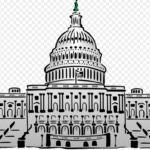SYDNEY, AUSTRALIA — In a moment of political drama and voter determination, Prime Minister Anthony Albanese secured a second term on Saturday, leading his center-left Labor Party to a convincing win in Australia’s federal election. The result not only marks the first re‑election of an Australian leader since John Howard in 2004, but also underscores how deeply everyday concerns—and even global headlines—shaped voters’ choices.
A Night of Surprises and Concessions
As the sun set, cameras captured Albanese’s broad smile in his Sydney electorate, even as Opposition Leader Peter Dutton stood beside him in Brisbane, conceding defeat. In a rare personal blow, Dutton lost his own seat—a stinging reflection of the Coalition’s struggles this year.
“Congratulations to Anthony Albanese—he’s earned this victory,” Dutton said graciously, shaking hands with his rival. “I wish him and his team well as they tackle the challenges ahead.”
Cost‑of‑Living and the “Democracy Sausage”
Back in suburbs from Perth to Melbourne, families queued at polling stations beneath bright autumn skies. True to Aussie tradition, volunteers flipped sausages on barbecues—“democracy sausages,” as locals call them—while Indonesians living in Bondi and retirees in Geelong cast their ballots side by side.
For many, the cost of groceries, rent, and childcare loomed largest. Thirty‑year‑old retail worker Alice Nguyen stood in line, breath visible in the cool morning air.
“I voted Labor because rent went up again, and I need more support to afford a home,” she said, clutching her reusable bag.
Similarly, 45‑year‑old engineer Ben Thompson from Adelaide pointed to higher energy bills:
“Inflation is easing, but prices are still too high. Albanese’s plan to tackle housing and healthcare felt real,” he explained.
Global Uncertainty—and the Trump Effect
It wasn’t just domestic headlines driving turnout. Across the nation, conversations turned to the unpredictable policies of U.S. President Donald Trump. His stop‑start tariffs, 10% duty on Australian exports, and fiery trade rhetoric sparked concerns among farmers and exporters dependent on overseas markets.
“We felt the sting of Trump’s tariffs last season,” said grain farmer Margaret O’Leary in New South Wales. “Having stable leadership in Canberra gives us confidence.”
Labor seized on that uncertainty, casting Dutton and the Coalition as too prone to global shocks. Political strategist Fiona Zhang observed:
“Albanese’s steady hand on trade contrasts sharply with Dutton’s more combative stance. Voters rewarded caution.”
The Numbers Behind the Win
According to the Australian Electoral Commission’s early projections:
- Labor: 70 seats
- Coalition: 24 seats
- Independents & Minor Parties: 13 seats
Under Australia’s compulsory ranked‑choice system, these figures point to a solid majority for Labor, though crossbenchers could hold sway on key bills. ABC analyst Antony Green summed it up:
“This is a big swing back to Labor. I can’t see how it turns around.”
What Lies Ahead for Albanese’s Second Term
With a fresh mandate, Albanese heads back to Parliament House in Canberra confident but aware of formidable tasks:
- Housing Affordability: New incentives for builders and first‑home buyers aim to cool spiraling rents.
- Healthcare Boost: Expanded funding for Medicare and more bulk‑billed doctor visits.
- Energy Support: Subsidies to ease power bills and accelerate renewable projects.
- Trade Stability: Strengthening ties with Asia‑Pacific and hedging against future tariff shocks.
A Wake‑Up Call for the Opposition
For the Liberal‑National Coalition, Saturday night’s result is a call to rebuild and rethink. Internal discussions are already underway about leadership, policy direction, and how to reconnect with working‑class voters.
“We must learn from this,” conceded a senior Liberal staffer. “Australia wants practical solutions, not just soundbites.”
Final Thoughts
Australia’s election showed that even in a stable democracy, voter sentiment can shift dramatically when everyday pressures collide with world events. As Albanese thanks grassroots volunteers and opposition MPs regroup, one truth stands clear: for many Australians, politics is personal—and they voted for leaders who promise to ease the burdens at home while navigating the storms abroad.
Read Also: Australians Head to the Polls with Trump and Rising Costs on Their Minds






